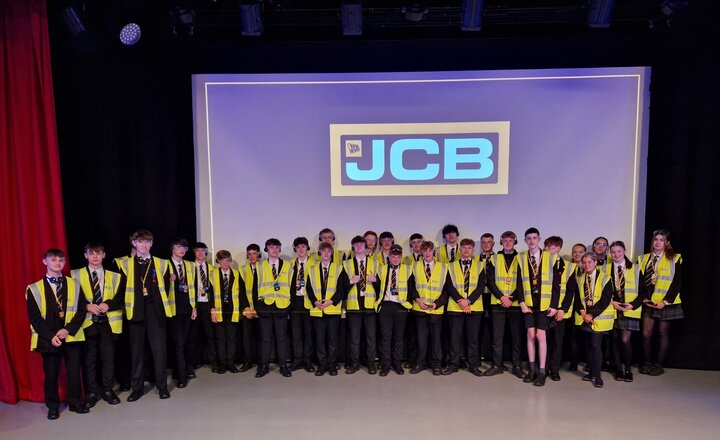Staff
For more information about the Subject curriculum, please contact: Mr S Mort the Curriculum Leader.
- Mr S Mort – Curriculum Leader
- Mr D Blackburn
- Mr M Daniels
- Mr J Harris
- Mrs H Hughes (Maternity Leave)
- Miss D Lockhart
- Mr A Shuttleworth
Computers
- There are three ICT suites in Business & Computing Department as well as suites in Technology and the Learning Resource Centre
- Over 100 computers in school connected via a Windows network
- Computer rooms within the Business & Computing Department are open during lunchtime (1.30pm to 2.00pm) and after school for student use
Lessons
- In Years 7, 8 and 9, students will follow the Key Stage 3 Curriculum
- In Year 7, students will be taught Core ICT skills in Desktop Publishing, Word Processing, Presentation skills, File Management, Email, Internet research and Computational Thinking
- Each class receives three lessons of Computing over a two week period
- In Years 10 and 11, students can opt for extra specialist courses:
- GCSE Business
- GCSE Computer Science
- There is always 1 computer per student
- There is a wide range of ICT used across the Curriculum – in all subjects
Business Curriculum Implementation
Computing Curriculum Implementation
Computer Science Curriculum Implementation
Key Stage 3 Curriculum
During Key Stage 3, students will develop their logical thinking skills and embed the programming constructs (sequencing, selection and iteration) the concept of ‘input, process, output’ and also develop their programming design skills through an understanding of pseudocode. The programming constructs are part of the thread which runs through Key Stage 3. They will become confident users of ICT and will develop their problem-solving skills through the use of abstraction and decomposition.
They will follow the learning pathways with targets of Foundation, Secure and Extending and they will become confident users of technology by utilising ICT both ethically and responsibly and will attain a high level of digital literacy by the end of the key stage.
Knowledge and skills learned during Key Stage 3 will be planned and sequenced to build on prior learning, both at Key Stage 2 and during Key Stage 3. The expectation is that students will have built up enough core knowledge, skills and experience to ensure they are prepared for Key Stage 4 and beyond, ensuring that they have gained skills to support them in their working and personal life within a digital world.
During Key Stage 3, pupils are encouraged to gain their iDEA Bronze Award. The Inspiring Digital Enterprise Award is an international award-winning programme that helps young people to develop digital, enterprise and employability skills. Throughout a series of online challenges, participants can win career enhancing badges, unlock new opportunities and, ultimately, gain industry recognised awards that help them to stand out from the crowd.
Pupils also take part in various Computer Science related competitions, such as the Bebras Computational Thinking Challenge, Alan Turing Cryptography Competition and CyberFirst Girls. The Department has organised trips to Bletchley Park, Amazon Web Services, Jaguar Land Rover and Microsoft and JCB.
At Key Stage 4 students have the option of choosing a GCSE in Computer Science or Business. If they do not follow that pathway, it is envisaged that the skills and knowledge gained at Key Stage 3 will provide a good base of knowledge and understanding for beyond Key Stage 4, be it at college, sixth form, an apprenticeship or employment.
|
Year Topic |
7 |
8 |
9 |
|
1 |
Orientation Learn how to navigate the school network and basic ICT skills |
Computers & Networks Learn how computers process instructions and data |
Python Programming Learn how to code using a text-based language |
|
2 |
Online Safety Learn how to become a Digital Citizen |
Flowol Learn how to design a sequence of events for a given problem |
Introduction to Business Learn the basic fundamentals of a business enterprise |
|
3 |
Databases Learn how to use a database to search for information |
Databases Learn how databases are created and how they are used for big data |
Computer Crime & Learn how to protect yourself online and gain an awareness of cybercrime |
|
4 |
Scratch Learn how to program using a visual language |
Spreadsheets Learn how to use a spreadsheet for calculations |
Online Safety Learn how to create a positive online identity |
|
5 |
Core Skills Learn how to use MS Office applications and the skills necessary for your future career |
Small Basic Learn how to code using a text-based language |
Graphics Learn how to create images using graphic design software |
|
6 |
Micro:bits Learn how to solve logic problems and create programs |
Websites Learn how to create a website |
Key Stage 4
GCSE Business
Students are studying the Edexcel (2017) specification and the course covers the following topics:
|
Theme 1: |
Enterprise and Entrepreneurship |
Spotting a Business Opportunity |
|
Putting a Business Idea |
Making the Business Effective |
Understanding External Influences |
|
Theme 2: |
Growing the Business |
Making Marketing Decisions |
|
Making Operational Decisions |
Making Financial Decisions |
Making Human Resource Decisions |
Assessment is by examination in Year 11
- Paper 1: Investigating Small Business (1 hour 45 minutes) (50%)
- Paper 2: Building a Business (1 hour 45 minutes) (50%)
GCSE Computer Science
Students are studying the AQA (2020) Specification and the course covers the following topics:
|
Fundamentals of Algorithms |
Programming |
Fundamentals of Data Representation |
Computer Systems |
|
Fundamentals of Computer Networks |
Fundamentals of Cyber Security |
Relational Databases and structured query language (SQL) |
Ethical, Legal and Environmental Impacts of Digital Technology on Wider Society including Issues of Privacy |
Assessment is by examination in Year 11
- Paper 1: Computational Thinking and Programming Skills – Written Exam (2 hours) (50%)
- Paper 2: Computing Concepts – Written Exam (1 hour 45 mins) (50%)
- AQA GCSE Computer Science is a nationally recognised qualification that is supported by Microsoft
Laptops for Pupils Scheme
For a monthly fee, pupils get a laptop that is theirs after 36 months. During that time, it is fully supported, insured, covered be a comprehensive warranty and installed with the software they need.
Laptops are part of a blended learning environment – they do not replace writing or discussion, but they do transform the ability to personalise, extend and deepen their learning.
Students’ access to a laptop in their learning allows for greater independence, learning at an accelerated pace and for genuinely collaborative work. The use of IT in a blended learning environment prepares students for the world of work.
Software
Free Internet access for all students via broadband. Secure filtering measures are in place to prevent access to any unsuitable material.
Microsoft Office 2019 (Access, Excel, PowerPoint, Publisher and Word are the main programs used in school, as well as topic specific software such as Scratch, Flowol, Small Basic and Python).
Students also have their own school email accounts using Office 365.
Further Information
AQA - https://www.aqa.org.uk/subjects/computer-science-and-it/gcse/computer-science-8525
Edexcel - https://qualifications.pearson.com/en/qualifications/edexcel-gcses/business-2017.html
Related News
The UK Bebras Challenge

